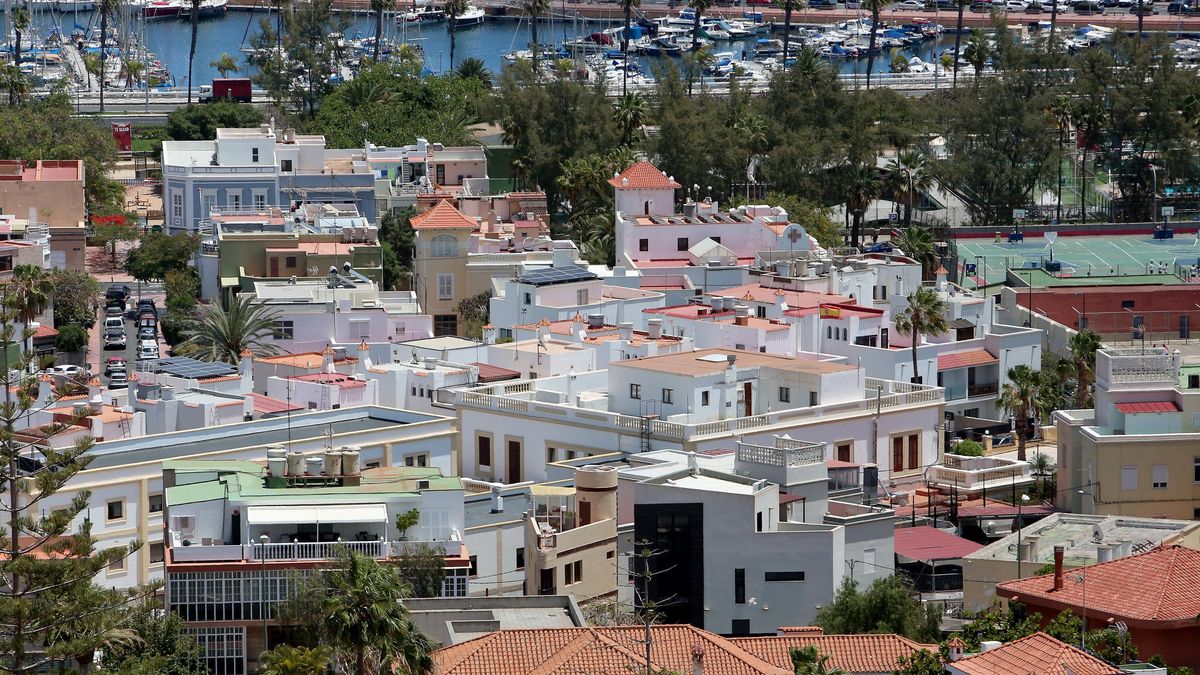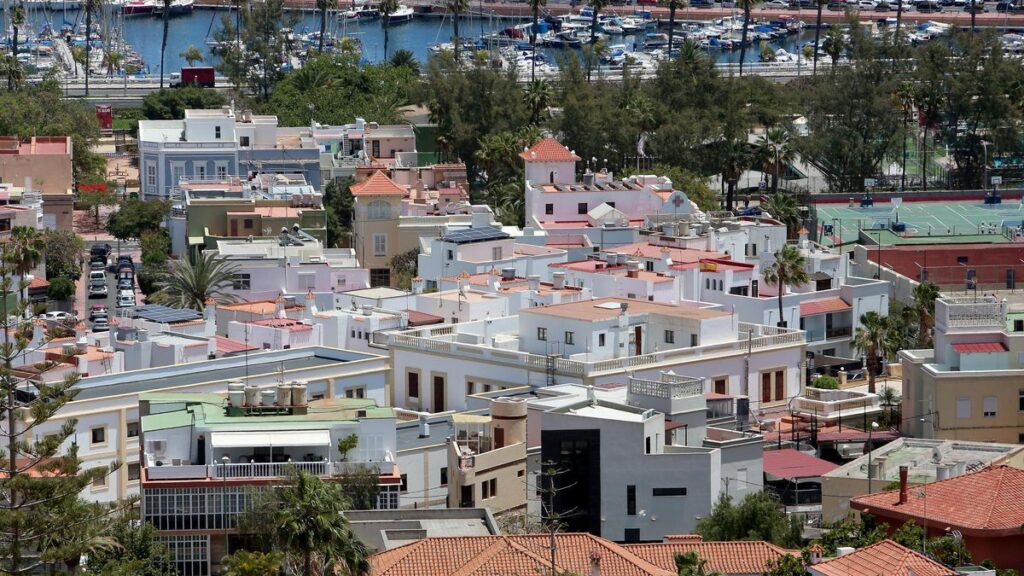Housing crisis reaches alarming levels
The housing crisis in the Canary Islands has reached unprecedented levels, with rooms costing €700, bunk beds priced at €350, and living rooms rented for €450. These shocking figures were revealed by Caya Suárez, General Secretary of Cáritas Diocesana de Canarias, during the presentation of the organization’s institutional report on Monday. Even more disturbing is the emergence of “hot bed” practices, where beds are rented by the hour to different people.
Suárez emphasized that the most critical situations stem from the inability to access housing, precarious employment conditions, and the vulnerable position of migrants. For travelers considering extended stays or those thinking of relocating to the islands, understanding this housing reality is crucial for making informed decisions about accommodation and living arrangements.
Cáritas overwhelmed by unprecedented demand
Cáritas is experiencing a critical moment that has forced the institution to reorganize as it has exceeded its capacity for social care due to economic difficulties. This compromises its ability to respond to the needs of the most vulnerable people in the province of Las Palmas. The organization attributes this situation to the lack of agility from institutions in managing subsidies and a 24% drop in donations.
The financial strain has forced Cáritas to apply for loans “to make up for the time taken by public administrations to pay subsidies” and implement a “ceiling” on certain services such as soup kitchens and rent subsidies. “We are facing a reality in which many families cannot afford to pay rent, which has devastating consequences for their stability, unity and dignity,” explained Cáritas director Gonzalo Marrero.
Irregular housing practices become normalized
Caya Suárez denounced the growing commodification of housing with irregular and abusive practices becoming commonplace. “Inadequate housing or substandard housing is normalized,” she remarked. Beyond the high prices for standard rooms, there are cases of utility rooms, rooftop spaces, commercial premises, and even garages being rented as living spaces.
The problematic practices include abusive pricing of houses and rooms, families crammed into shared houses, subletting of rooms and spaces without habitability certificates, increased real estate businesses offering substandard housing, conducting “casting” sessions with abusive rental conditions, the proliferation of “hot beds” with sleeping shifts in the same space, absence of contracts and rental rights, and even the sale of census registrations. These conditions significantly impact the quality of life for both residents and long-term visitors to the islands.
Vulnerable families face multiplied challenges
According to the annual report, 32% of families at risk of residential exclusion assisted by the Cáritas Housing area were single-parent families (typically households headed by women), and 58% of these families were also foreigners. The report states that “this type of household faces more complex situations and any type of material deprivation is multiplied in households where there is only one adult and dependent children.”
These households have reduced ability to reconcile work and family life, depend on a single income, and lack a regulatory framework that defines and regulates single-parent families. The situation is particularly challenging for international families who may have moved to the islands seeking better opportunities.
Tourism economy creates employment paradox
Suárez highlighted the persistently low salaries in the Canary Islands, coupled with precarious working conditions in the hotel and catering industry. Many people seeking assistance come from the underground economy, while others receive small benefits that don’t cover basic services. This has led to a change in the profile of those seeking help, with people who never imagined needing assistance now approaching Cáritas.
The report notes that employment generated in the Canary Islands is closely associated with the service sector, specifically tourism. However, this employment typically pays less than other sectors and involves longer working hours. While tourism brings economic benefits to the islands, the employment it generates often fails to provide adequate wages for the current cost of living, creating a challenging paradox for workers in the industry that makes the islands attractive to visitors.
Underground economy becomes survival necessity
The informal economy lacks social protection and basic labor guarantees. According to the report, “10% of the households assisted by Cáritas are inserted in the underground economy which, despite the great precariousness and defenselessness it represents for workers, has become an essential means of income for migrants who do not have their administrative situation regularized and lack other resources.”
Despite some improvements in the AROPE rate (risk of poverty or social exclusion), which stands at 31.2% in the Canary Islands, facing unforeseen expenses continues to be difficult for 48.9% of the population. The percentage of people reporting “great difficulty” in making ends meet has increased to 12.4%, representing a 2.5 percentage point rise.
Migrants face compounded obstacles
The migrant population faces particularly severe challenges, with obstacles multiplied by the absence of residence and work permits or their temporary nature. As a result, their chances of finding employment or decent housing are significantly reduced. This situation affects both the humanitarian aspect of the islands and can impact the cultural diversity that many visitors appreciate about the Canary Islands.
A staggering 54% of households that Cáritas assisted in 2024 were of migrant origin, with 57% in an irregular administrative situation and therefore lacking public social protection. The uncertainty is further aggravated for minors in situations of homelessness due to the legal limbo they face when reaching adulthood.
Registration difficulties create rights violations
The difficulties surrounding census registration represent a serious violation of rights, as registration serves as the gateway to social protection and settlement processes for migrants in irregular administrative situations. Many city councils make registration difficult in places without habitability certificates, while landlords or other tenants obstruct the procedure because it affects their access to aid, subsidies, or tax reductions.
These situations generate new forms of vulnerability abuse, including the sale of census registrations or additional costs in rental housing if registration is required. Such practices further complicate the housing situation and create additional barriers for those already in precarious situations.
Call for solidarity and institutional commitment
Cáritas Diocesana de Canarias calls for citizen solidarity and commitment from both public institutions and private companies, emphasizing that behind each statistic are real families who deserve a dignified life. The organization manages to “pay attention to and welcome the last of the last, those who are left out of the design of public policies, those who are discarded during procedures or those who are awaiting resolution.”
However, Cáritas’ funding limitations and lack of resources have created impediments in addressing some realities of poverty and exclusion, forcing the organization to prioritize the most critical and vulnerable situations. During the report presentation, Bishop José Mazuelos stressed that “we raise our voices because poverty is more intense for families and Caritas has more difficulties attending to a reality that is worsening for the most vulnerable.”


